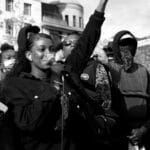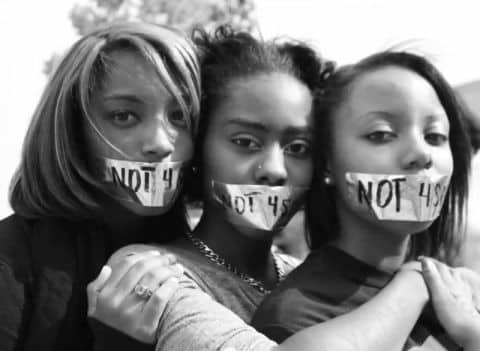Human trafficking is an alarming global crime. It is the illegal act of recruiting, transporting, harboring, or exploiting people through force, fraud, or coercion for purposes such as forced labor, sexual exploitation, or slavery-like practices.
It is a violation of human rights, where victims are treated as commodities and deprived of their freedom, often through threats, manipulation, or abuse. It affects people of all ages, genders, and backgrounds, and is considered a form of modern-day slavery.
Human trafficking affects millions of men, women, and children around the world, often targeting vulnerable populations, including those living in poverty, conflict zones, or areas with weak legal and social protections.
Table of Contents
Human Trafficking in Nigeria: A Brief Overview
Human trafficking is a widespread crime throughout Nigeria and beyond. It has become noticeable in every part of the country. You can say that human trafficking is a pervasive issue in Nigeria, both as a source and a transit hub for trafficking victims.
Victims are recruited, transported, harbored, or exploited through coercion, deceit, or force. Victims of human trafficking are usually subjected to forced labor, sexual exploitation, and other forms of abuse, both within the country and abroad.
According to the state department’s trafficking in persons (TIP), Nigeria is classified as a “Tier 2” country by the United States of America (USA). This means that the government of Nigeria does not fully meet the minimum standards for eliminating trafficking, although it has been making efforts to improve. Efforts like increasing cooperation with foreign counterparts on anti-trafficking law enforcement activities.
Common destinations for trafficked Nigerians include Europe (particularly Italy, Germany, France, and Spain), the Middle East, and other African countries.
Want to learn more about our blog and what we do? You have the floor. Gladly meet us here!
Types of Human Trafficking
-
Sex trafficking
This involves coercing individuals, often women and children, into the commercial sex trade. Victims may be manipulated or deceived with promises of legitimate opportunities, such as jobs, education, or migration to better living conditions, only to be trapped and exploited. Traffickers use threats, violence, or emotional abuse to control them.
-
Labor trafficking
This form of trafficking involves the exploitation of individuals for forced labor in various industries, including agriculture, construction, manufacturing, and domestic work. Victims may face poor working conditions, lack of pay, and physical or psychological abuse.
-
Child trafficking
Child trafficking is a grave violation of children’s rights and a form of modern-day slavery. Children are especially vulnerable due to their age and dependence on adults. They are trafficked for different reasons, including child labor, sexual exploitation, forced begging, or recruitment into armed groups.
Young girls are trafficked into marriages, often to older men, under the guise of cultural practices or financial arrangements. These children can be exposed to hazardous or exploitative conditions. They can show signs of physical abuse, malnourishment, or exhaustion. They get little or no access to school, healthcare, or freedom of movement.
-
Organ trafficking
Some traffickers exploit individuals by harvesting and selling their organs illegally. This type of trafficking often involves vulnerable individuals who are coerced or deceived into giving up their organs and this is a practice that poses life-threatening risks.
-
Forced marriage
In some cases, victims are trafficked for the purpose of forced marriage, where they are coerced into marriages without their consent. This often involves exploitation and abuse within the marriage.
Causes of Human Trafficking in Nigeria
-
Poverty
Lack of financial opportunities and extreme poverty make people more vulnerable to traffickers. Individuals from impoverished backgrounds are more likely to accept risky job offers, including promises of working abroad without properly vetting the opportunities.
Traffickers often deceive vulnerable people by offering loans or jobs, then exploit them through forced labor, sex trafficking, or debt bondage. In impoverished regions, there may be fewer community resources (e.g., healthcare, legal protection, and law enforcement), making it easier for traffickers to operate.
Poverty alone may not cause human trafficking, but it creates fertile ground for exploitation.
-
Political instability and conflict
Wars, civil unrest, and natural disasters create environments where trafficking can thrive, as people are displaced and more vulnerable.
-
Lack of education
Low levels of education and awareness make individuals more susceptible to being deceived or forced into trafficking situations.
-
Weak legal frameworks
In a country with poor law enforcement or corruption, people are more prone to human trafficking, as traffickers can operate with little fear of prosecution.
-
Gender inequality
Women and girls are often the main target affected by trafficking, especially for sexual exploitation, due to widespread gender discrimination.
Ways to Combat Human Trafficking
Human trafficking is a multifaceted issue that requires a coordinated global effort, involving governments, NGOs, law enforcement agencies, and communities, to effectively combat and prevent it.
Governments should implement stricter laws to combat human trafficking. Below are a few ways to make this work:
-
Protection of human rights
Trafficking is a violation of basic human rights, including the right to freedom, dignity, speech and security. Stricter laws ensure better protection for vulnerable populations who are at risk of exploitation.
-
Deterrence and prevention
Stronger legal frameworks and harsher penalties for traffickers serve as a deterrent. Criminals involved in trafficking often operate in networks which involve different stages of operations, and stricter laws can disrupt these networks, making it riskier and less profitable to engage in trafficking.
-
International cooperation
Trafficking is often a cross-border issue, involving several countries. Stricter national laws can facilitate international cooperation, enabling governments to work together more effectively in apprehending traffickers and rescuing victims.
-
Addressing root causes
Laws can also help address the underlying socio-economic factors that lead to trafficking, such as poverty, gender inequality, lack of education, and weak legal systems. With a more robust legal approach, governments can focus on prevention strategies alongside punishment.
-
Accountability
Binding laws can hold not only individual traffickers accountable but also companies and institutions that may indirectly benefit from forced labor or exploitation. This helps to reduce the demand and addresses trafficking at a systemic level.
If you don’t mind receiving premium insights like this in your inbox, you can subscribe to our newsletter and let’s keep you posted.
Conclusion
Laws are essential to disrupting human trafficking networks, protecting victims, and fostering a society that values and respects human dignity. It provides a comprehensive approach that involves preventing trafficking, prosecuting offenders, and protecting and rehabilitating victims, thereby reducing the scope of this global crime.
Related Posts
- Should The Death Penalty Be Abolished in Nigeria?
- Peer Pressure Among Nigerian Youths: The Good and Bad
- A Capitalist or Democratic Government: Which One is Better?
Edited by Priscilla Ajayi.
About Author

- Passionate content/technical writer with a flair for words and a keen eye for detail. Specializes in producing compelling content that captivates readers. Dedicated to delivering high-quality writing content with a commitment to meeting client needs and exceeding expectations.
Latest entries





